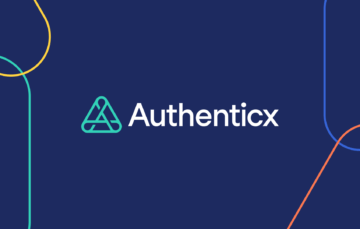
Healthcare organizations are placing a renewed focus on building a more customer-centric approach with their messaging and CX strategies. This comes as the industry faces enhanced competition, digital disruption, and changing consumer expectations. To meet those needs, a whole industry has built up around soliciting customer insights and feedback.
The problem: These insights are entirely based on solicited feedback (mostly commonly from customer experience surveys)
The pervading approach has been that in order to know what a customer thinks about an organization– the brand or their experience with the brand– customers have to be asked. However, this approach commonly leads to biased responses since organizations are asking specific questions they want answers to, rather than listening to what’s top of mind for their customers.
When considering opportunities to gather actionable, representative, and honest feedback from customers, unsolicited feedback channels provide enormous value and insights in the customer’s own words. Every day, there’s countless recorded interactions coming into contact centers, and those conversations contain market insights that are critical in building an impactful customer-centric strategy that pushes past surface-level survey insights.
Why Surveys Are Not Enough
We know across healthcare, surveying customers for feedback is a popular, best practice. While surveys do contain feedback and data insights, leaders need to recognize the downsides of solely relying upon surveys to glean information needed to improve the customer journey.
Limited & Skewed Sample Size
Survey insights are dependent on the response rate, and consumers are inundated with requests for feedback. This leads to fatigue, survey abandonment, and a fractional return rate. Additionally, responses tend to skew towards very good or very bad feedback from a small group of respondents.
Questions are Limited
Curated questions in a survey format limits the feedback being received. How a question is worded, phrased, or asked can lead respondents to answer questions in a particular way or be inherently biased in context. Additionally, the customers may not connect with or understand the question being asked. This limits how organizations can gain organic insights directly from their customers.
Surveys Put Added Burden on the Customer
Customers are already sharing feedback directly in conversations. Imagine during a conversation you’ve explained to a representative why you’re feeling frustrated (multiple calls, inconsistent answers, organizational error, etc.). And then after this conversation you are asked to stay on the line and answer a survey. Cue: more frustration. That is what is happening today with the burden for feedback placed on the customer.
Surveys Lack Context
Score-based survey data gives general sentiment around customer feedback, but it lacks context. Surveys often do not offer enough information or background to know why certain scores are what they are and what action can be taken for it. That context exists in the richness of dialogue that helps inform how a customer really feels.
More comprehensive feedback is necessary to understand the truth of what your customers are feeling.
How Unsolicited Feedback Enhances Customer Experience in Healthcare
It’s hard to base a customer experience strategy only on survey data. The data simply isn’t reliable or fully representative of the entire customer population. Leveraging conversations that already exist in the contact center offer an unsolicited, bi-directional recorded dataset that holds valuable feedback and CX insights.
Reflect What’s Top of Mind for Customers
When you’re studying unsolicited feedback, what you’re getting is what’s top of mind for that customer in their own words. In an unsolicited dialogue where someone is contacting a company to discuss their frustration, they’re not responding to a question you’ve asked, they’re telling you what they want you to hear. This brings incredible value to enhancing customer experience across healthcare by focusing on the customers’ own words.
Conversations Provide Context
Studying conversations provides more context around a satisfied or dissatisfied customer response. Leveraging conversations in contact centers as a data source offers a complete conversation between customer and agent with the full story and background. As a leader, it gives you the information needed to develop a more accurate strategy and action plan.
Hear From a Representative Sample
With unsolicited feedback, you can tap into 100% of customer conversations using technology to help offer a full analysis. Whereas with a survey data set you’re relying on whoever decides to respond. Having access to the totality of customers who are choosing to interact with your brand presents insights along the entire continuum of customer satisfaction (not just the outliers of high highs and low lows).
Source of Organic Testimonials
Customers are saying how much they value the human being on the other side of the phone. They’re expressing relief for the product or service the company is giving. They’re giving testimonials that a lot of marketing companies would pay big dollars for. And they’re freely sharing compliments and appreciation. These testimonials are raw, sincere, and unsolicited providing a channel of feedback that is organically shared in the moment.
Customer experience in healthcare has too long relied on surveys as the data ‘cornerstone’ for marketing strategy and CX communication. Conversations are full of insights about what the customers think, what they feel, and what they wish the company would innovate on.
In the past this data was hard to access due to the unstructured nature and sheer volume; it was impossible to navigate. Technologies (like machine learning, AI, and conversational intelligence) have come a long way to opening this type of communication open to analysis and insights.

See Authenticx in Action
Learn more about how Authenticx analyzes customer conversations to surface recurring trends in this two-minute video.
About Authenticx
Authenticx was founded to analyze and activate customer interaction data at scale. Why? We wanted to reveal transformational opportunities in healthcare. We are on a mission to help humans understand humans. With a combined 100+ years of leadership experience in pharma, payer, and healthcare organizations, we know first-hand the challenges and opportunities that our clients face because we’ve been in your shoes.
Want to learn more? Contact us!


